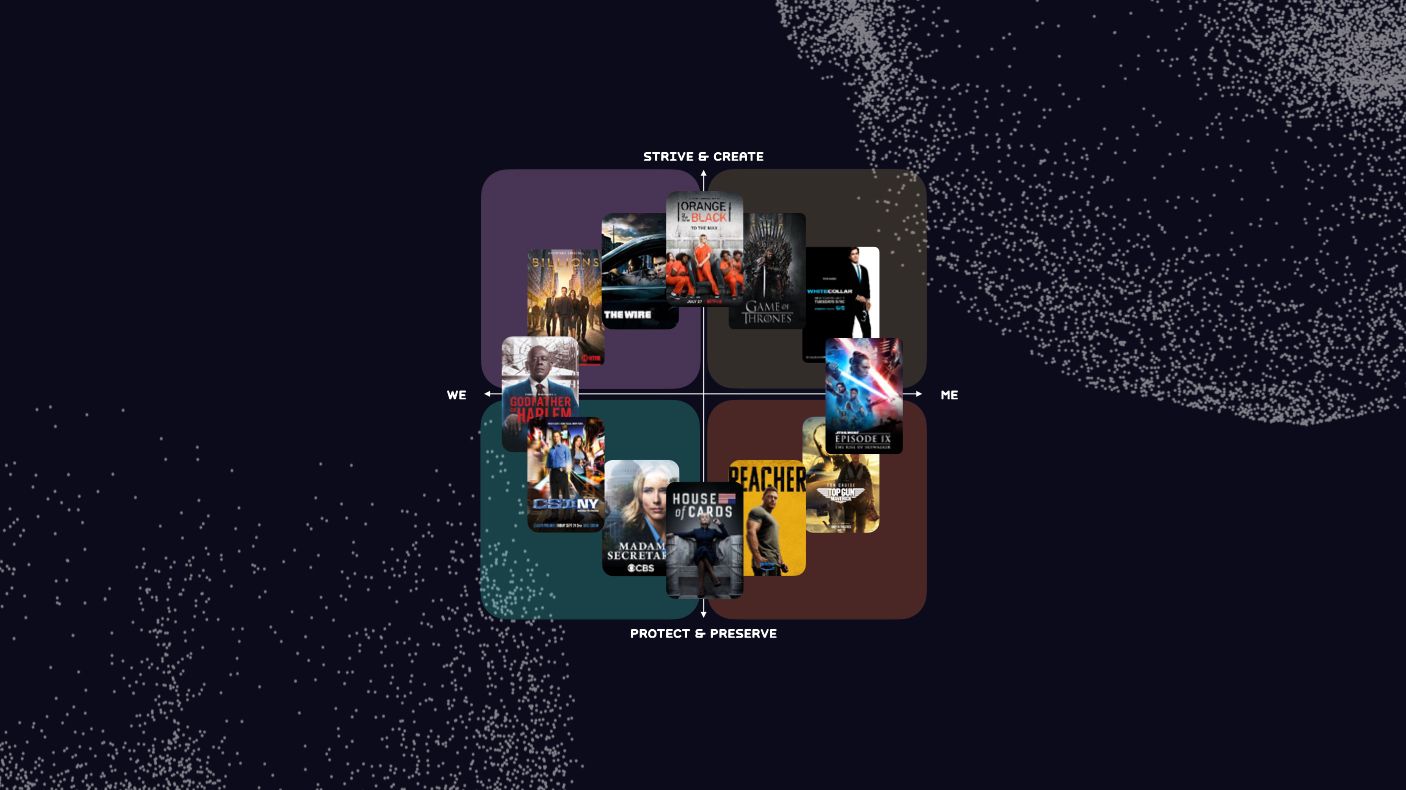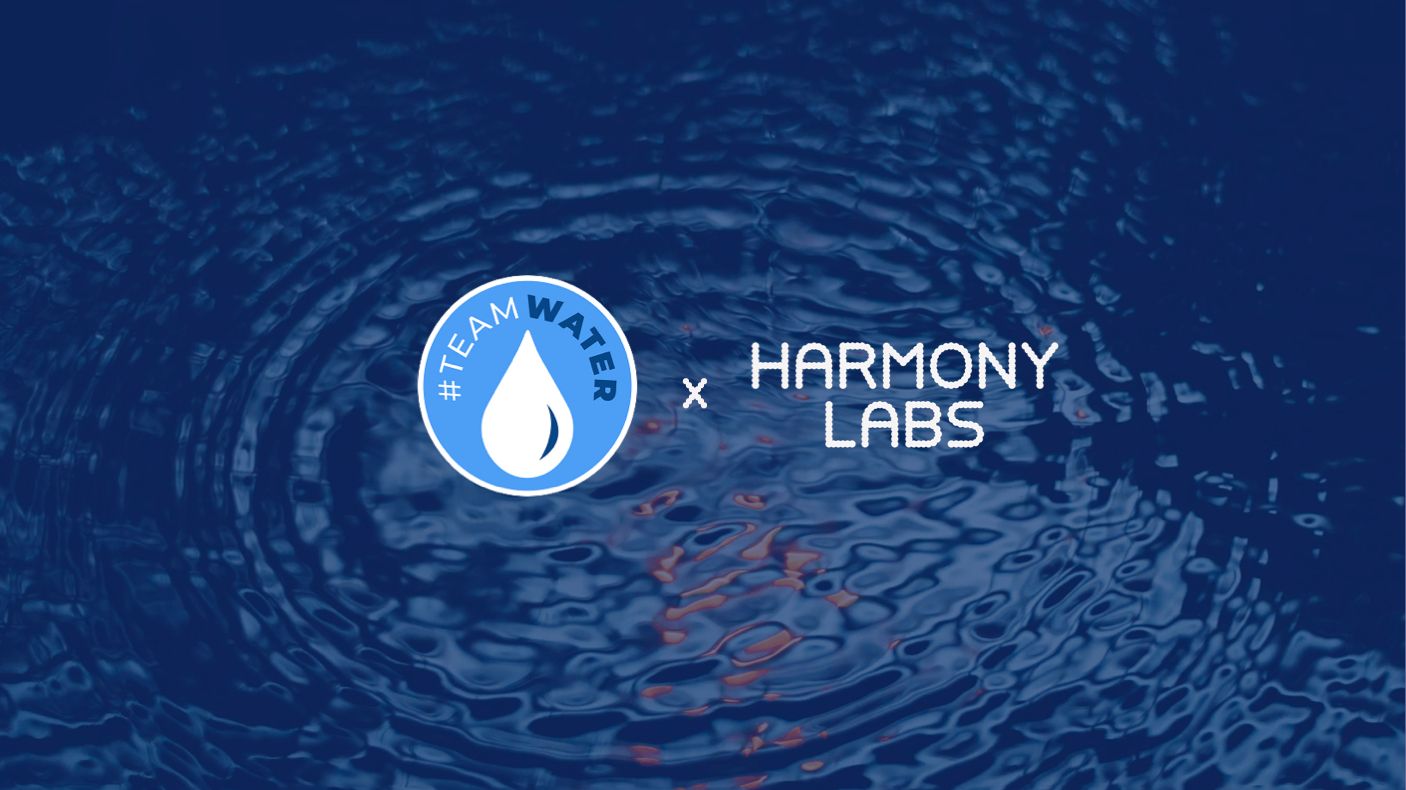Four Principles For Building Power in Media


2025-01-16
Democracy 2076 and Harmony Labs have spent the past year investigating how entertainment media might be shaping people’s understanding of government.
We are excited to share with you findings from the first phase of research. In the full report, you can dive deep into all the stories within streaming content that we tested for impact on audiences’ attitudes about democracy, their desire to participate in it, and hopes for the future. You can also watch our recent briefing below.
Watch now: Democracy 2076 and Harmony Labs present first-of-its-kind media research on democracy
Today, only 59% of Americans receive formal civic education in school and 42% actively avoid the news. Therefore, entertainment media might be a crucial, yet often overlooked, source of civic education. Media makers and advocates can use this as an opportunity to get curious and compassionate about how story-driven media can animate people’s feelings and actions towards American democracy. Without understanding how different audiences engage with government-related content, funders and creators are simply guessing at what stories will resonate.
We analyzed the media consumption of 130,000 streaming platform users watching nearly 29,000 individual programs to understand the prevalence of government-themed media and how different themes around democracy and authoritarianism impacted different values-based audiences. Our analysis revealed three surprising insights about democracy in entertainment:
What we expected: Studios don’t want democracy, government, or anything overtly political in their stories.
What we learned: Government-related content abounds and reaches a substantial audience, with 58% of streaming viewers encountering programs with governmental themes daily. Genres like science fiction and adventure consistently incorporate both democratic and authoritarian themes due to their world-building nature.
 Streaming viewers who encounter government-related content
Streaming viewers who encounter government-related content
What we expected: Audiences won’t engage with stories that feature democracy or government as key thematic elements.
What we learned: The pursuit of liberal democracy makes for blockbuster content. The government themes that audiences frequently encounter across many genres reflect the majoritarian-minority, rights-and-freedoms tensions in liberal democracy. These types of conflicts give rise to compelling characters and stories that often yield commercial success, from The Handmaid’s Tale to Top Gun: Maverick.
 Blockbuster democracy content
Blockbuster democracy content
What we expected: Stories that inspire audiences to support democracy amount to feel-good propaganda.
What we learned: Democracy stories aren’t boring or one-note; they look different for every audience, who each hold distinct and different values. The stories that get told about democracy—how the world works and what we can expect of our systems—need to focus on people’s values, not their politics. The media that we analyzed were distinctive to one of our four values-based audience profiles.

We incorporated perspectives from democracy advocacy groups and Hollywood stakeholders to identify and annotate compelling stories for testing, running more than 20 tests with over 10,000 people through randomized controlled trials to understand specific story elements that unify audiences in democracy support. What we found provides early clues about the kinds of stories we might make to resonate with a more diverse set of audiences—beyond the audiences already bought in:
For example, we observed positive movement for our creative-minded audience, If You Say So, on future-set stories, particularly those in imagined universes like Star Trek and Star Wars: Episode IX, and darker dystopian futures such as Handmaid’ s Tale. Even though these storylines seemed to do the best job sparking audiences’ imaginations about a democracy that could work for them, only 8% of stories that we investigated were set in the future.
Phase 2 of this research will build critical bridges between theory and practice. We will enrich our existing data by incorporating voter files into our values-based audience segmentation, and develop specific recommendations for both funders and creators on how to identify, support, and craft stories that strengthen democracy—including digging deeper into audiences that were not moved positively towards democracy with current media offerings. Through stakeholder briefings and co-creating toolkits, we aim to make this research directly actionable for decision-makers in entertainment and philanthropy.
To explore this study in depth, access the full report here, or watch the video of our recent research briefing here. If it sparks additional ideas or questions, get in touch at hello@harmonylabs.org.



